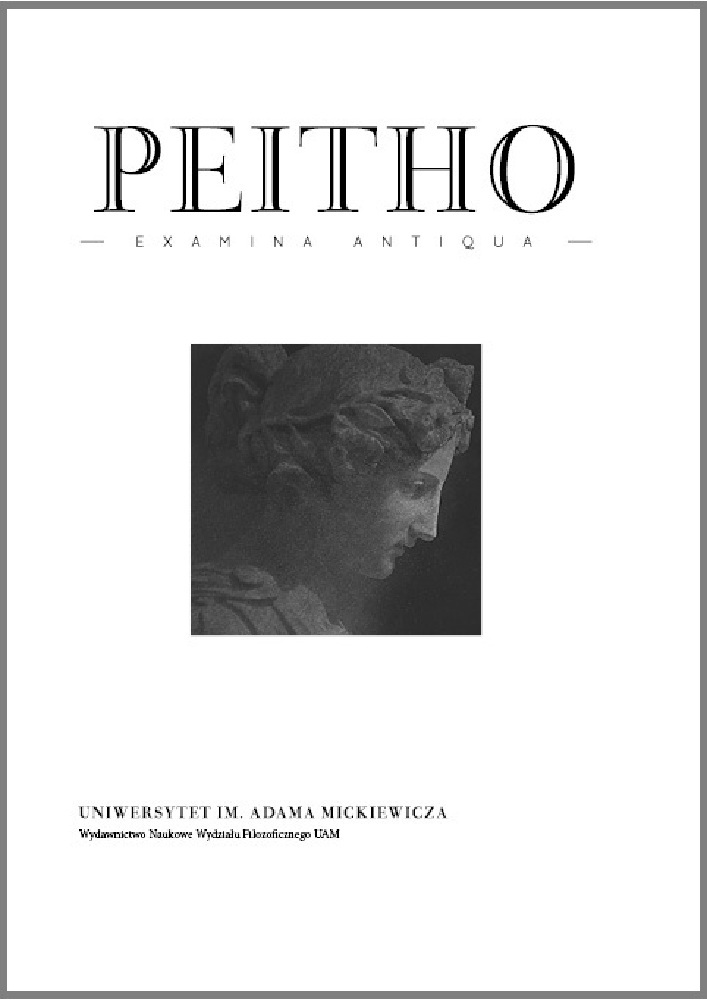Abstract
While Isocrates regarded rhetoric not as a rigid discipline, but as a creative and pliable art, it is not possible to standardize art. According to his point of view (Against the sophists 13.13), good speech depends on certain principles: opportunity (kairos); suitability (to prepon) and novelty (kainos). The sophists, according to Isocrates, did not pay attention to these principles, and that was their main mistake. The problem was, however, that it was difficult to teach these principles to the disciples, precisely because rhetoric was a flexible art. Still, although it is not possible to provide fixed rules concerning rhetorical principles, the ancient rhetor provided some useful suggestions in his works which make it possible to reconstruct the nature of these principles.
References
Isocrate, Discours, vol. I–IV, G. Mathieu, E. Brémond (ed.), Paris 1972 [1928–1962].
Isocrates in Three Volumes, vol. 1–3, G. Norlin, L. Van Hook (transl.), Cambridge 1961.
Isocrates I, D. Mirhady, Y. L. Too (transl.), Austin 2000.
Isocrates II, T. L. Papillon (transl.), Austin 2004.
Baumlin, J. S., 2002, “Ciceronian Decorum and the Temporalities of Renaissance Rhetoric”, in: Sipiora, Baumlim 2002, pp. 138–186.
Bertuccelli Pappi, M., 2000, Chè cos’è la Pragmática, Milano.
Kinneavy, J. L., 2002, “Kairos in Classical and Modern Rhetorical Theory”, in: Sipiora, Baumlim 2002, pp. 58–76.
Matson, W. I., 1957, “Isocrates the Pragmatist”, The Review of Metaphysics 10, pp. 423–427.
Poulakos, T., Depew, D. (eds.), 2004, Isocrates and Civic Education, Austin.
Ramírez Vidal, G., 2016, La invención de los sofistas, México.
Schiappa, E., 1999, The Beginnings of Rhetorical Theory in Classical Greece, New Haven–London.
Schwarze, S., 1999, “Performing Phronesis: The Case of Isocrates’ Helen”, Philosophy & Rhetoric 32, pp. 78–95.
Sipiora, P., Baumlin J. S. (eds.), 2002, Rhetoric and Kairos. Essays in History, Theory and Praxis, Albany.
Sullivan, R. G., 2001, “Eidos/idea in Isocrates”, Philosophy & Rhetoric 34, pp. 79–92.
Timmerman, D. M., 1998, “Isocrates’ Competing Conceptualization of Philosophy”, Philosophy & Rhetoric 31, pp. 145–159.
Too, Y. L., 1995, The Rhetoric of Identity in Isocrates, Cambridge.
License
Peitho provides immediate open access to its content on the principle that making research freely available to the public supports a greater global exchange of knowledge.
